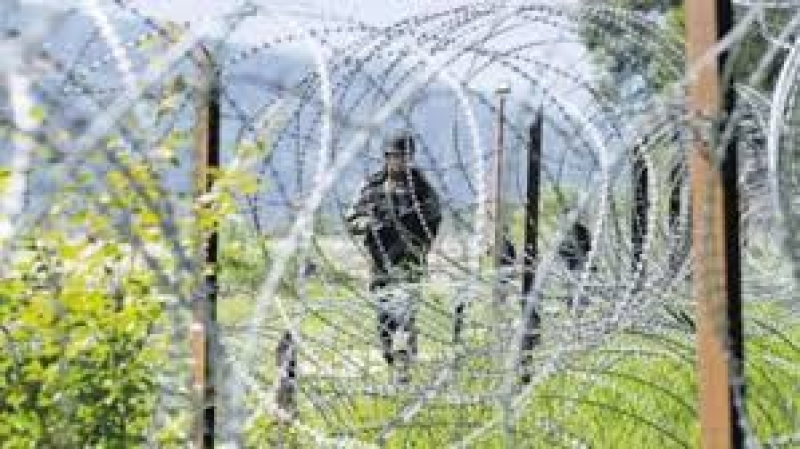- Power generation at Payra Thermal Power Plant 1st unit starts after a month |
- Irregularities, injustice will no longer be accepted in politics: Jamaat Ameer |
- 2 arrested in Jhenaidah for allegedly selling madrasa student |
- Koko’s wife campaigns for Tarique in Dhaka-17 |
- Bangladeshi Expats Cast 4.58 Lakh Postal Votes |
Bangladesh and India Identify 100 New Border Fencing Areas

High-level talks between Bangladesh's Border Guard (BGB) and India's Border Security Force (BSF) concluded on Friday with both sides agreeing to erect fences along nearly 100 additional stretches of their shared border, according to Indian ministry sources. This will expand the ongoing fencing project aimed at strengthening border security.
The two countries also agreed to establish direct communication lines between the commanders of the BGB and BSF to "further enhance trust and maintain cordial relations," amid ongoing border tensions. This agreement comes after a recent incident in which the BGB attempted to prevent fence construction in Malda.
The Indo-Bangla border stretches 4,096 km across Bengal, Tripura, Assam, Meghalaya, and Mizoram, and has long been a source of disputes, particularly concerning the placement of barbed-wire fencing and border management.
During the three-day bilateral talks, both sides reached a consensus on adding nearly 100 new sections to the fencing project, in addition to continuing the ongoing fencing work initiated by India. They also agreed to strengthen joint patrolling and increase nighttime surveillance to combat cross-border crime.
As of now, 864.48 km of the border remains unfenced, including 174.51 km of areas deemed "non-feasible," such as riverine stretches. The new communication channels will link the Additional Director-General of BSF’s Eastern Command in Kolkata and the BGB counterpart in Dhaka, enabling real-time information sharing to address border issues and cross-border crimes swiftly.
Fencing at 92 stretches, covering 95.8 km, is already underway, and the new 100 stretches, covering approximately 70-72 km, will begin following joint inspections.
While Bangladesh has long objected to the fencing, claiming it violates the 1975 India-Bangladesh border guidelines, which prohibit defense structures within 150 yards of the Zero Line, India maintains that its single-row fence does not qualify as a "defense structure."

